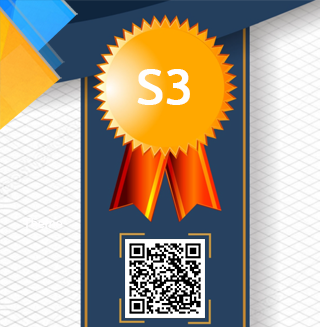The Relationship between Nutritional Intake, Eating Behavior (Picky Eater) and the Nutritional Status of Autism Sufferers in Autism Therapy Places in Pekanbaru City
DOI:
https://doi.org/10.25311/keskom.Vol10.Iss3.1879Abstract
Children with autism are at high risk of experiencing unbalanced nutritional fulfilment, in addition, children with Autism Spectrum Disorders (ASD) tend to have picky eating behavior, behavioral disorders when eating, refusing to eat and being sensitive to the texture and smell of certain foods. Picky eating is one of the eating behaviors that affect nutritional status. Nutritional problems are not only poor nutritional status but short and thin children can also affect the growth and development of children. According to several studies, if picky eating in children is not treated immediately, it will have effects, such as inadequate certain nutrients which will affect nutritional status. Good nutritional status will be achieved if the body gets a balanced intake of nutrients according to needs. To achieve optimal nutritional status and not excessive eating habits autism sufferers must contain the appropriate amount of nutrients to meet physiological needs during growth and development. The eating behavior of autistic children at the autism therapy centre in Pekanbaru City experiences problems with inadequate food intake. Several autistic children always consume only one type of food. This study aims to determine the relationship between nutritional intake, eating behavior (picky eater) and the nutritional status of autism sufferers at autism therapy centres in Pekanbaru City. This cross-sectional study on 90 autistic children was conducted at autism service centres and autism therapy clinics in Pekanbaru City using random sampling techniques. Analysis to determine the relationship between nutritional intake, and eating behavior (picky eater) with nutritional status using the chi-square test with a significance limit of α = 0.05. The results showed a significant relationship between energy, carbohydrate, protein and fat intake and the nutritional status of autistic children (p <0.05). The relationship between iron and zinc intake and the nutritional status of autistic children did not have a significant relationship (p> 0.05). The results of the analysis of the relationship between picky eater behavior and nutritional status showed no significant relationship with a p-value (p> 0.05).
Downloads
References
1. Halahan, D. & JM, K. Exceptional Learners: An Introduction to Special Education.12th Edition. (USA: Pearson Education Limited, 2014).
2. Kurnia, N. & Muniroh, L. Correlation between Picky Eater Behavior and Nutrient Adequacy of Children with Autism Spektrum Disorder (ASD). Media Gizi Indones. 13, 151 (2018).
3. Sharp, W. G., Jaquess, D. L. & Lukens, C. T. Multi-Method Assessment of Feeding Problems among Children with Autism Spectrum Disorders. Res. Autism Spectr. Disord. 7, 56–65 (2013).
4. Sanges, V. P. V., Giovagnoli, G., Armando, L. M. F. L. D. P. M., Vicari, S. & Mazzone, L. Clinical differences in children with autism spectrum disorder with and without food selectivity. Appetite 125–132 (2015) doi:10.1016/j.appet.2015.05.016.
5. Jasmawati & Setiadi, R. Faktor - Faktor yng Mempengaruhi Status Gizi Balita : Systematic Review. Mahakam Midwifery J. 5, 99–106 (2020).
6. Wijayanti, A. P. & Mutalazimah, M. Hubungan Asupan Energi Dengan Status Gizi Anak Autis Di Yayasan Pembinaan Anak Cacat (Ypac) Kota Surakarta. J. Kesehat. 11, 9–15 (2018).
7. Oktaviana, W., Amir, Y. & Indriati, G. Identifikasi Tingkat Pengetahuan Ibu tentang Diet Casein Free dan Gluten Free pada Anak Autis. J. Online Mhs. FKP Univ. Riau 5, 677–682 (2018).
8. Siyoto, S. Visual Schedule towards the Decline of Behavioral Problems in Feeding Activities and Defecation in Children with Autism. J. NERS 10, 250 (2015).
9. Puteri, Z. I. O., Nugraheni, S. & Aruben, R. Hubungan Pengetahuan Ibu, Pola Konsumsi dan Diet GFCF dengan Status Gizi Anak Autisme di Sekolah Luar Biasa (SLB) Negeri Kota Semarang Tahun 2017. J. Kesehat. Masy. 6, 562–569 (2018).
10. Zimmer, M. H. et al. Food Variety as a Predictor of Nutritional Status Among Children with Autism. J Autism Dev Disord 42, 549–556 (2013).
11. Ramadayanti, S. & Margawati, A. Perilaku Pemilihan Makanan Dan Diet Bebas Gluten Bebas Kasein Pada Anak Autis. J. Nutr. Coll. 2, 35–43 (2013).
12. Sopiandi, R. Pengetahuan Gizi Ibu, Pola Makan, Asupan Zat Gizi dan Status Gizi Anak Dengan Autism Spectrum Disorder ( Asd ). Argipa 2, 45–53 (2017).
13. Castro, K. et al. Folic acid and autism: What do we know? Nutr Neurosci 7, 10–7 (2016).
14. Sundari, E. & Nuryanto. Hubungan Asupan Protein, Seng, Zat Besi, Dan Riwayat Penyakit Infeksi Dengan Z-Score Tb/U Pada Balita. J. Nutr. Coll. 5, 520–529 (2016).
15. Gotts, S. J., Simmons, W. K., Cox, R. W. & Martin, A. Spectrum Disorders Spectrum Disorders. J Am Diet Assoc 18, 463–471 (2010).
16. Green, D. et al. Impairment in movement skills of children with autistic spectrum disorders. Dev. Med. Child Neurol. 51, 311–316 (2009).
17. Adams, S. N., Verachia, R. & Coutts, K. Mealtime challenges and food selectivity in children with autism spectrum disorder in South Africa. South African J. Clin. Nutr. 78–84 (2021) doi:https://doi.org/10.1080/16070658.2021.1954794.
18. Hardianti, R., Dieny, F. F. & Wijayanti, H. S. Picky eating dan status gizi pada anak prasekolah. J. Gizi Indones. (The Indones. J. Nutr. 6, 123–130 (2018).
19. Lubis, H. A. Analisis hubungan perilaku picky eater terhadap tingkat kecukupan gizi anak prasekolah di perkebunan bungara estate (pt. Lonsum) kabupaten langkat. (Universitas Islam Negeri Sumatera Utara, 2021).
20. Astuti, E. P. & Ayuningtyas, I. F. Perilaku Picky Eater Dan Status Gizi Pada Anak Toddler. Midwifery J. J. Kebidanan UM. Mataram 3, 81 (2018).
21. Cerdasari, C., Hadisuyitno, J., Sutjiati, E. & Adelina, R. Picky Eater, Asupan Makan, Dan Status Gizi Pada Anak Prasekolah. Med. Respati J. Ilm. Kesehat. 17, 75–82 (2022).
22. Kusuma, H. S., Bintanah, S. & Handarsari, E. Tingkat Kecukupan Energi dan Protein pada Status Balita Pemilih Makan di Wilayah Kerja Puskesmas Kedungmundu Semarang. 3rd Universty Res. Colloq. 557–564 (2016).
Downloads
Submitted
Accepted
Published
How to Cite
Issue
Section
License
Copyright (c) 2025 Jurnal kesehatan komunitas (Journal of community health)

This work is licensed under a Creative Commons Attribution-NonCommercial-ShareAlike 4.0 International License.





























